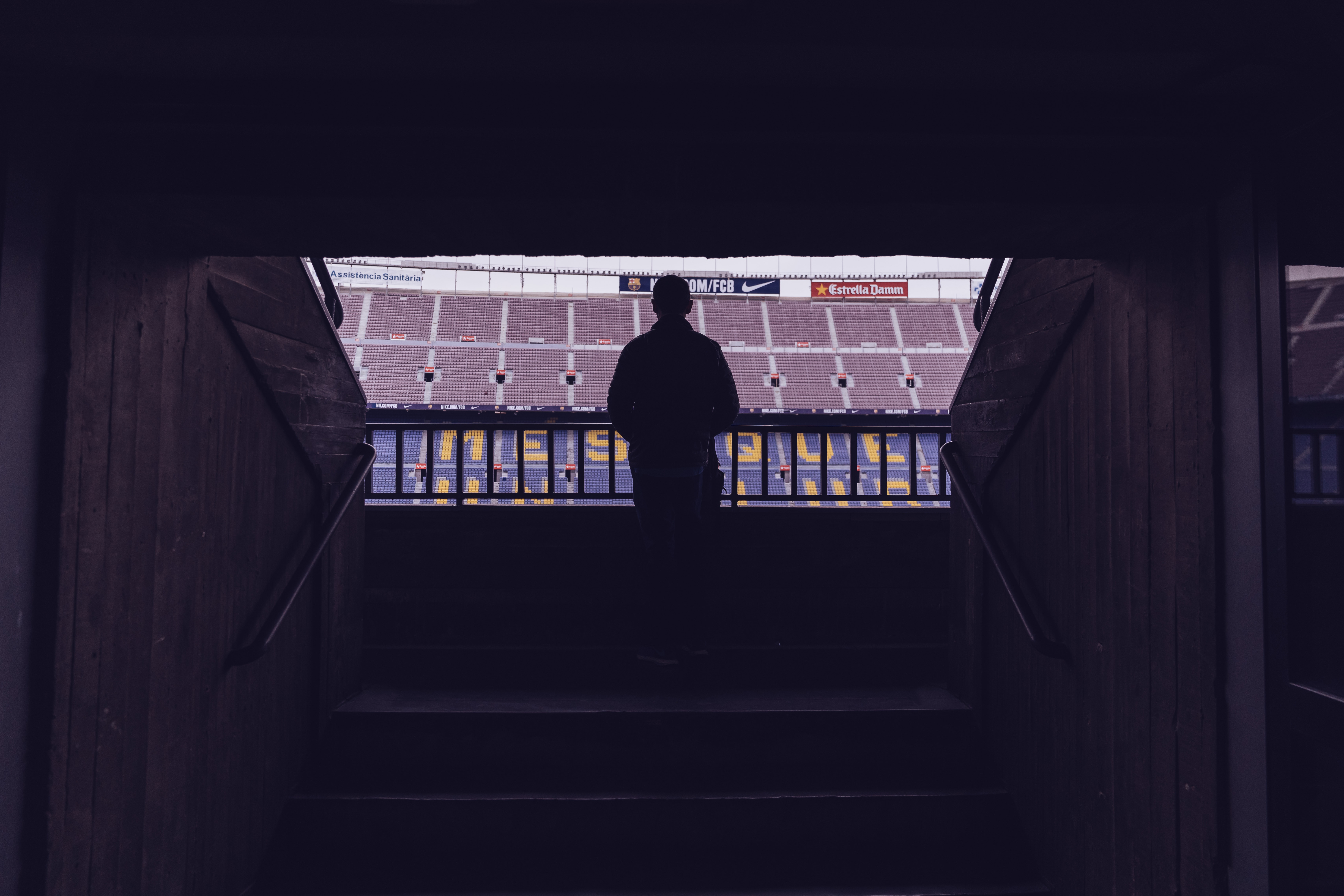Writing a memoir about a lifetime within the world of professional football consumed four years after my NFL Hall-of-Fame father’s death. When I first put pen to paper, I didn’t intend to write a book. I was knee-jerk journaling, just the latest of many straws I’d been grasping for to heal the rooted PTSD from child abuse.
The process was a double-edged sword. Sometimes I stared at an empty page for an hour. Other times, I couldn’t read what I’d scribbled at break-neck pace. Either way, writing rubbed the wound raw. But I needed to do something. Because only when my father died did I realize that one reason I’d spent decades riding his coattails was because I’d been holding an unrequited fantasy of healing with him directly. So when his passing closed forever the path to our reconciliation, I doubled down on every means within my reach to soothe and solve life-long symptoms.
Hence, the journaling. Things didn’t change much for a long time. Sleeplessness continued. Debilitating anxiety about a blindside hit didn’t abate. Guilt and shame still poisoned my thoughts and afflicted my relationships. That was normal stuff for me. But what wasn’t normal, once my father passed, were the flashbacks. These events, triggered by the violent world of pro football more fundamental to me than being American, were no longer buried by family loyalty. After my father Mike’s death, I saw the NFL and all it bore into my life with different eyes. And this happened at a time when stories of players’ domestic violence dominated professional football.
Opening to the flashbacks took my journaling in a new direction. I didn’t know it immediately, but here’s the tipping point in my decision to publish, as chronicled in my memoir:
The next domino fell hard on July 28, 2014. It was just a few months after Mike’s death. My questions about him and football were still swirling. On that late July day, [Raven’s running back] Ray Rice received a standing ovation from Baltimore fans when he took the field at training camp for the first time after dragging his unconscious fiancé from a New Jersey elevator months earlier. He had apologized in the face of a looming suspension from the League. And for doing the minimum of what any decent human being had to do in his situation, he received a hero’s welcome.
The story about what happened inside the elevator was still to come. For me, the standing ovation was enough.
Childhood trauma leaves hidden traces. Kids “push it out of their minds, trying to act as if nothing happened.” But the wound comes back to life, years later. These PTSD flashbacks are “incomprehensible.” I’d read about flashbacks, the kind that haunt war veterans and child abuse victims, and I never doubted they were real. Now I can say for sure. The body does stuff the mind can’t control. Insomnia. Blind-siding emotional releases. Inexplicable illness. Such was my reaction to the Ray Rice incident.
[But} why did the standing ovation trigger me, and not news of the abuse itself weeks earlier? The fans’ reaction is what threw me into a time warp. I was reliving my childhood, but it wasn’t Mike’s violence that provoked me. In flashback land, I was face-to-face with the lifelong relationship triangle that was Mike, the NFL, and me. There, pro football’s significance commanded a different set of rules. Violence was acceptable. Perpetrators were celebrated.
Worst of all, I was guilty; so blind with fanaticism, I dismissed my own experience. Of all fans, I should have known better. When the Ravens faithful stood on their feet for Ray Rice, I understood that we’d all jumped on the NFL bandwagon, abandoned accountability, and left our sanity behind. Me, especially. To this day, it defies reason that within hours after reading about the fans’ applause, I locked myself in the bathroom and wept.
I ended up lucky. Supporters encouraged me to write the truth about what led to this moment, not in scribbled diary, but coherently on the off chance it might someday contribute to another’s process. Giving shape to the project that way proved beneficial by focusing my determination to heal. In turn, I discovered more clues to help release what I’d held in my body for over 50 years.
Yes, my writing started as an ax to grind, but publishing a memoir became nothing of the sort. I purged a burden by bringing my truth to light. It’s true what they say, that the Truth will set you free. And that freedom holds a promise of forgiveness. It did for me.
My symptoms will never disappear. I’ve given up hope that I will ever sleep soundly again. I have to meditate daily to get my body to shed tension. I will always pause before a small glass of vodka, wrestling silently with the urge to reach instead for the whole bottle and slam it down for the worst of reasons.
But since learning to let go – the essence of forgiveness – food tastes better. I have good dreams now and then. I learned how much I love writing. And I found my muse in nature.
My writing path is one of a million possibilities for getting through it. But I believe what they say that the only way out is through. It isn’t easy and it isn’t gonna be quick. Find a way to treat your body abnormally well. Find an outlet for your truth whether it be writing, talk therapy, music, creating with your hands, finding a moment of presence with whatever you love. Get help even though a lot of the journey has to be done alone.
And be willing to let go. Forgive, most importantly, yourself. Because here’s a sure truth required for getting free: You can’t forgive others unless you’ve found it for yourself first.


